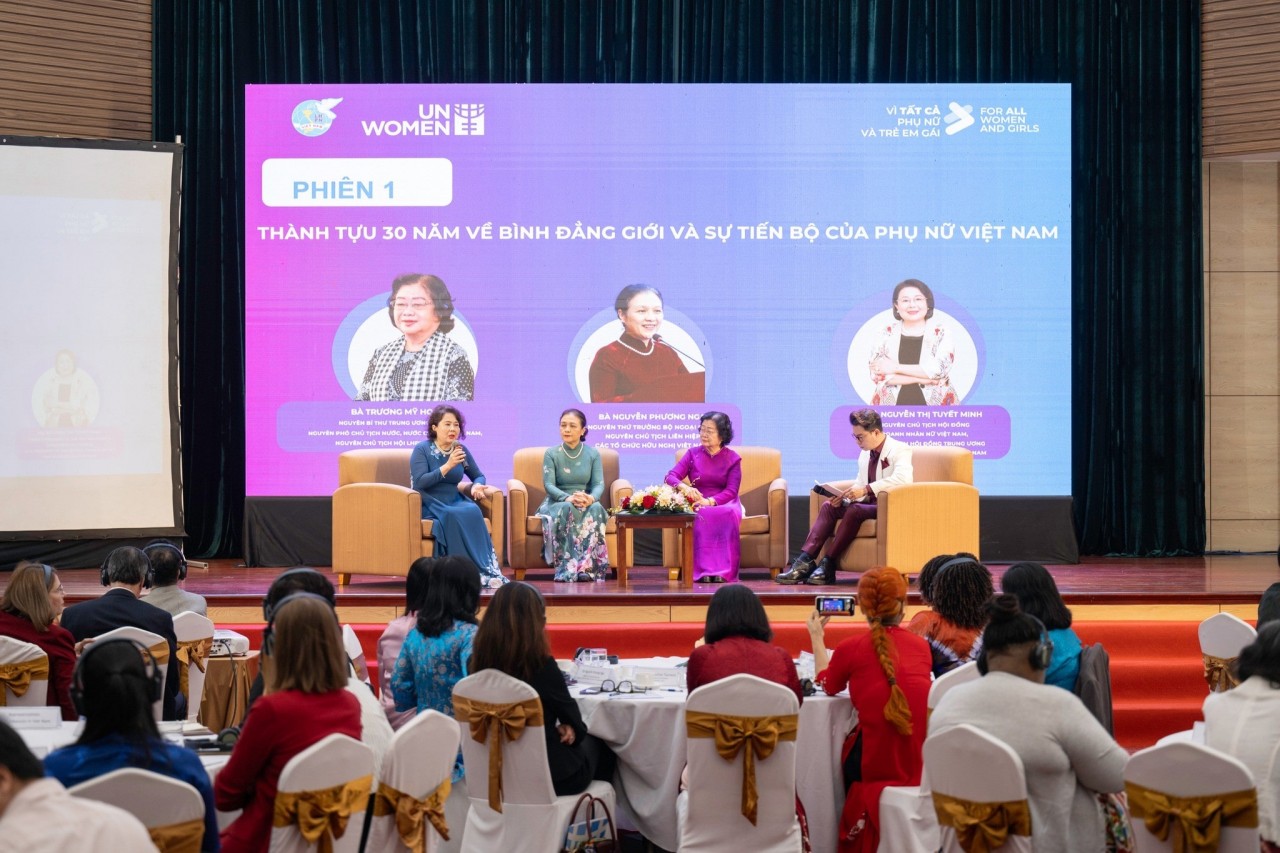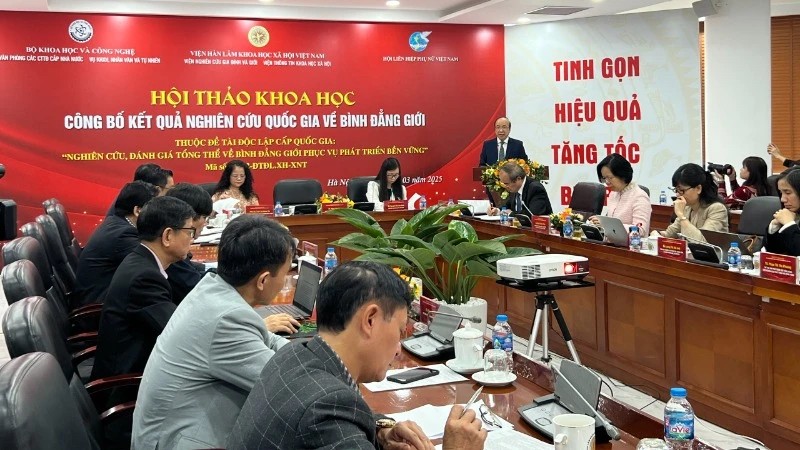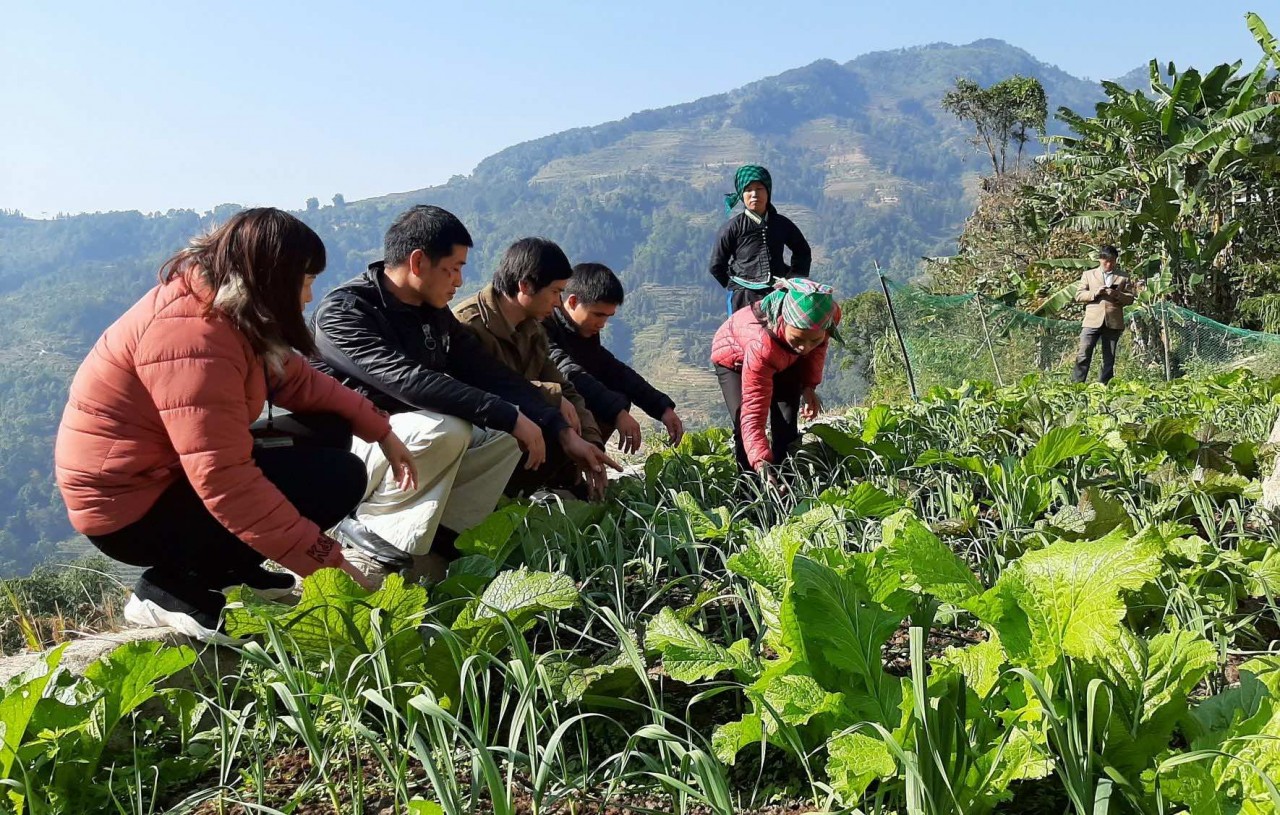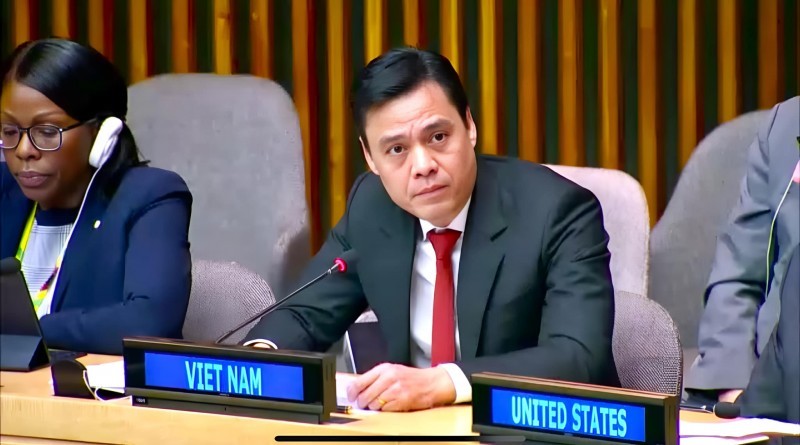Vietnam Ranks 83rd in 2022 Global Gender Gap Report
Vietnam was ranked 83rd out of 146 countries in the Global Gender Gap Report announced by the World Economic Forum.
 |
| Illustrative image. Source: VCCI |
The WEF report analyzes various statistical data on the status of women using four categories of economy, education, health, and politics. The gender gap index is based on one being the highest possible score, indicating that gender parity has been achieved, while zero means complete gender disparity.
The increase is thanks to "mild improvements" recorded in closing the gender gaps across the four main components of the index: Economic Participation and Opportunity, Educational Attainment, Health and Survival, and Political Empowerment.
According to VNA, in terms of closing the gap in Economic Participation and Opportunity, Vietnam is ranked 31st, behind countries like Sweden (5th), the US (22nd), Kenya (6th), and regional neighbours like Laos (1st), Thailand (15th), or the Philippines (16th), out of 146 countries assessed.
Indicators at this level reveal that lower workforce participation and lower parity in workforce participation have both contributed to poorer gender outcomes, the report said.
“While parity in technical and professional workers has been maintained, the share of women in legislator, senior and manager roles decreased approximately one percentage point. Finally, estimated earned income also fell, in higher proportion for women (-20.7%) than for men (-18.3%).
Vietnam only ranks in 88th place in terms of Educational Attainment, with the report commenting that the literacy rate increased by 0.005, which, in the absence of data for compulsory education enrolment, raised the sub-index score slightly.
The country is nearly at the bottom of the ranking for Health and Survival sub-index at 141st place (just above Qatar, Pakistan, Azerbaijan, China, and India). In Asia Pacific region, the WEF report noted that “Vietnam and China have the most progress still to make.”
Marginal improvements in sex ratio at birth in Vietnam and China have led to an average improvement of the region’s sub-index gender gap score of 0.3 percentage points. Only five countries in this region have achieved gender parity in healthy life expectancy: Mongolia, Vietnam, Thailand, Myanmar, and the Philippines.
The country is in 106th place in terms of Political Empowerment, with most European countries populating the highest places.
On Political Empowerment, Vietnam saw a 3.6 percentage points increase in the share of women in parliament, although men continue to hold 100% of ministerial roles, according to the WEF.
Relative to other regions, East Asia and the Pacific registered the second-lowest measure of progress on Political Empowerment, ahead only of Central Asia. The region achieved a 13.3% in gender parity on this sub-index, which is marginally lower than the last edition. Only four countries have closed the gender gap in the share of women in parliamentary positions by at least one percentage point: in order of magnitude of improvement, Vietnam, Timor-Leste, New Zealand, and Indonesia.
Overall in the East Asia and the Pacific, Vietnam ranks 9th out of 19 countries assessed, with New Zealand and the Philippines in the top, and Vanuata and Japan at the bottom.
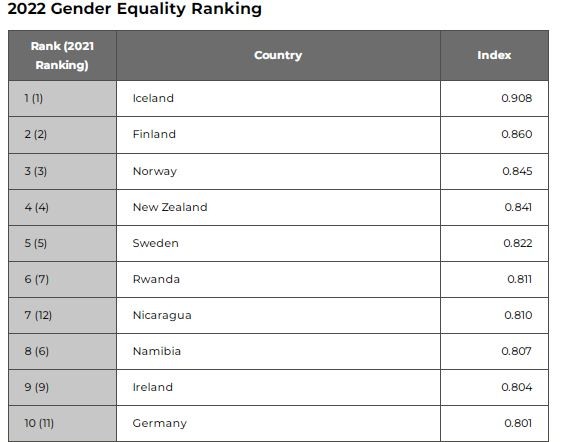 |
| Data from the World Economic Forum Global Gender Gap Report 2022. |
The Global Gender Gap Index benchmarks the current state and evolution of gender parity and is the longest-standing index which tracks progress towards closing these gaps over time since its inception in 2006.
In 2022, the global gender gap has been closed by 68.1%. At the current rate of progress, the Gender Gap Index says it will now take 132 years to reach gender parity, with the gap reducing only by four years since 2021 and the gender gap closed by 68.1%. But this does not compensate for the generational loss between 2020 and 2021 as the trends leading up to 2020 showed that the gender gap was set to close within 100 years. South Asia will take the longest to reach gender parity, which is estimated to be likely in 197 years.
The top 10
Although no country has yet achieved full gender parity, the top 10 economies have closed at least 80% of their gender gaps, with Iceland (90.8%) leading the global ranking. Iceland remains the only economy to have closed more than 90% of its gender gap.
Other Scandinavian countries such as Finland (86%, 2nd), Norway (84.5%, 3rd) and Sweden (82.2%, 5th) feature in the top 5, with additional European countries such as Ireland (80.4%) and Germany (80.1%) in 9th and 10th positions, respectively.
Among the Group of Seven nations, Germany ranked highest for gender parity at tenth place. It was followed by France (15), Britain (22), Canada (25), United States (27), and Italy (63). Japan was ranked 116th.
Sub-Saharan African countries Rwanda (81.1%, 6th) and Namibia (80.7%, 8th), along with one Latin American country, Nicaragua (81%, 7th), and one country from East Asia and the Pacific, New Zealand (84.1%, 4th), also take positions in the top 10.
Nicaragua and Germany are the new entrants in the top 10 in 2022, while Lithuania (79.9%, 11th) and Switzerland (79.5%, 13th) drop out this year.
 | Essential Services Improved to Support Women, Children Experiencing Gender-Based Violence Women’s role in trade is increasing as they contribute not only to the growth of the economy, but also the harmony and sustainability of society. |
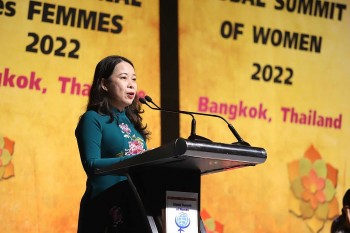 | Optimising Women's Potential in Making Recovery Policy: Vice President Women should be viewed as the goal, the driver, the subject, and at the same time, the beneficiary of the pursuit of a “new reality”, ... |
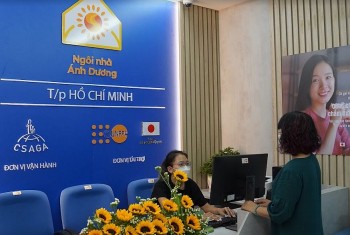 | KOICA Continues to Support Women's Safe House Model in Vietnam KOICA and UNFPA continued their commitment to zero gender-based violence and harmful practices to women and girls in Vietnam. |
Recommended
 World
World
Pakistan NCRC report explores emerging child rights issues
 World
World
"India has right to defend herself against terror," says German Foreign Minister, endorses Op Sindoor
 World
World
‘We stand with India’: Japan, UAE back New Delhi over its global outreach against terror
 World
World
'Action Was Entirely Justifiable': Former US NSA John Bolton Backs India's Right After Pahalgam Attack
Popular article
 World
World
US, China Conclude Trade Talks with Positive Outcome
 World
World
Nifty, Sensex jumped more than 2% in opening as India-Pakistan tensions ease
 World
World
Easing of US-China Tariffs: Markets React Positively, Experts Remain Cautious
 World
World




